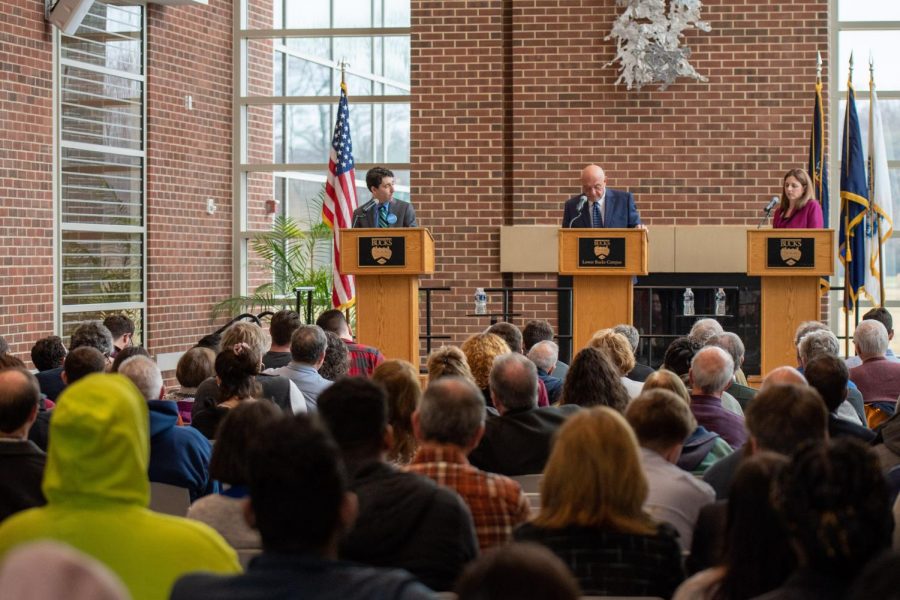With the newly narrowed Democratic presidential race led by a moderate and a progressive, a similar political battle is being waged here in the 1st Congressional District of Pennsylvania. The congressional candidates took on the debate stage on Feb. 25, at the Lower Bucks campus.
The debate was between Christina Finello of Ivyland and Skylar Hurwitz of New Hope. The Democrats hope to unseat Republican incumbent Brian Fitzpatrick in the House of Representatives.
When first given the floor, Finello said, “The biggest reason I’m running for Congress is because there are many people in this district, like myself, who feel that the people in Washington aren’t talking about the issues that they deal with day to day, and when I go to Washington, that’s what I want to be. I want to be a representative for people in this district.”
Claiming endorsements from the Montgomery County Democratic Committee and Bucks County Democratic Committee, Finello added, “I will never forget where I came from.” Hurwitz, took no time to delay his backing of Medicare for All, guaranteed child care which would include full education, and support of immediate environmental action.
“That’s what my campaign is about, it’s about real structural changes to this system, that so many of us are sick and tired of,” he said.
Endorsed by Our Revolution Pennsylvania, The Sunrise Movement at Pennsbury High School, and Leap Forward Community Safety Group, Hurwitz, perhaps unsurprisingly, is a supporter of both Bernie Sanders and Elizabeth Warren. Opponent Finello has yet to publicly endorse a presidential candidate professing.
“Any of the candidates running right now for Democrat would be far better than what we have in the office right now,” said Finello which earned her cheers from members of the audience.
With the rise of student debt looming in the minds of most students at Bucks, the candidates took very different approaches on how to mend this climaxing crisis. A Wall Street speculation tax as well as a wealth tax is how Hurwitz’s plan resolves funding which would be allocated towards eliminating a student’s debt.
On the aspect of a wealth tax, he said, “If you’re an individual that has wealth, $32 million or more, you’re going to experience a wealth tax of .5 percent on your income. There’s basically a bracket system where it goes up depending on your wealth maxing out at 8 percent.”


